Exclusive! Ashwiny Iyer Tiwari: Pathaan’s success has given a lot of hope to filmmakers
In an exclusive interview with OTTplay, award-winning filmmaker Ashwiny Iyer Tiwari sheds light on the male and the female gaze while telling compelling narratives
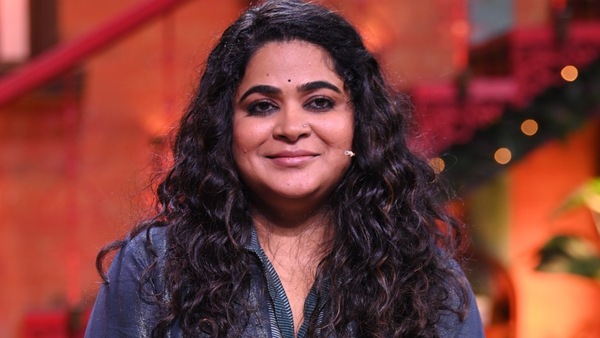
Last Updated: 08.47 PM, Feb 02, 2023
You may need ‘the big idea’ to turn the tables in the world of advertising, but when it comes to filmmaking, relentless effort to chase your passion is what counts more. Amid hits and flops and the brickbats, you step out to tell a story that you truly believe in. In an industry that still relies more on the male gaze, acclaimed filmmaker Ashwiny Iyer Tiwari has given us some memorable, genre-bending films - like Nil Battey Sannata, Panga and Bareilly Ki Barfi - that speak volumes about women who dare to take charge behind the camera.
At the prime of her corporate career, Ashwiny left her illustrious job at Leo Burnett in the early 2010s to take up film direction. A decade later, she is counted among India’s most accomplished female filmmakers, who have dared to masterfully tell nuanced stories about both male and female characters. While she still enjoys making ad films, movie-making is what, she admits, gives her the real joy. Her recent OTT ventures - Break Point (a ZEE5 documentary series) and Faadu (a romance-drama web series streaming on SonyLIV) have also been received quite well. Both the series are available on OTTplay premium.
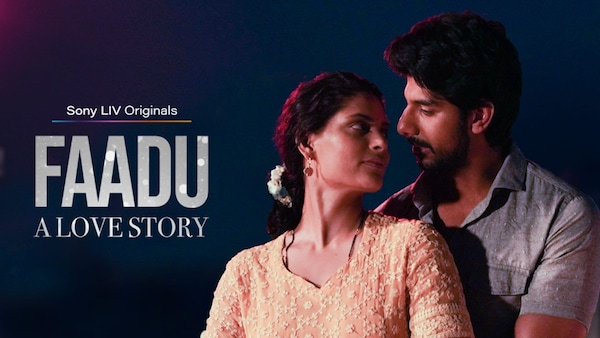
In a freewheeling conversation with OTTplay, Ashwiny talks about why she thinks it’s high time we see a filmmaker as a storyteller and not as a ‘male’ or a ‘female’ director, the impact of Pathaan’s success on the industry, her take on film critiquing and more. Excerpts:
1. In a previously published interview, you were described as a ‘director with a purpose’. In a male-dominated industry, what should be the primary focus of a female filmmaker?
When we started off, say during 2015-2016, there were not many female directors frontlining projects. It was not common for women from middle-class families to come and direct films. But things have changed quite a bit over the past five or six years. In fact, in the past year, we have seen a huge number of women directors frontlining projects, many of whom were also listed for various awards under different categories. And that’s a very encouraging trend - from being one among five to being at least three among five to be nominated for various awards. I think that’s a big change. To tell a woman’s story we always have a male gaze and a female gaze. And because of the way God has created us, when it comes to telling a story we are a little more conscious and have the capacity to evoke a kind of warmth about who we are as a person.
For instance, when I speak to my actors, they say that they are more comfortable speaking to me or having a conversation. That, I think, also stems from the fact women are more of a nurturer or caretaker, and have a little more warmth with what we do and how we conduct ourselves.
I feel that now is the time when we need to gradually minimise this ‘male director’ and ‘female director’ notions, because now it’s more about who is the storyteller. We are very fortunate to live in a country where there are so many female directors now, and there are so many assistant directors, who are the future directors of the nation. So, that is a change we seek. And I think it’s up to us to hire more women. It is pertinent that more and more men and women hire more women in the field of film direction and give them the necessary push to take up film direction. For example, Netflix had this thing that they would have more women behind the camera. When I am shooting with my crew or producing a film, whether it’s an advert or a feature film, my brief to my team has always been that every department has to have like a one to two ratio.
I need at least two women in a team of five, whether it’s the production or the direction team; the costume or the camera team. The more we try to bring about a change the more change we’ll see. It’s something similar to how when once upon a time we would hear the name of a woman as a pilot, everyone would have a smile on their face. That’s because there were so few women as pilots. But now, there are so many of them. I think that’s where we need to head.
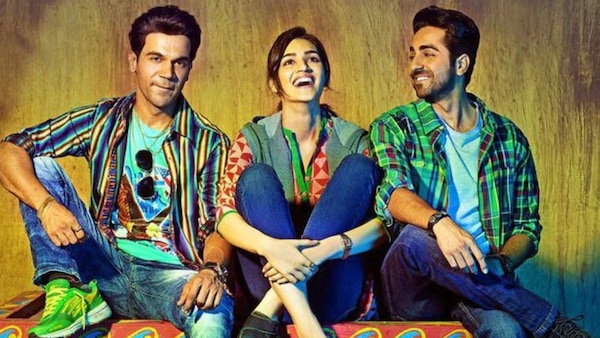
2. There are often conversations about the male gaze in films, especially when female characters are written by men. But in your films, you’ve shown vulnerability in men with the characters of Ayushmann Khurrana and Rajkummar Rao in Bareilly Ki Barfi and even a feminist husband like Jassie Gill character in Panga - which isn’t a norm. Your comments…
I really like this question. I think it is very important that we minimise saying that when there is a female protagonist, it has to be a woman directing the film. Bareilly Ki Barfi, for instance, was written by men - Shreyas Jain and Nitesh Tiwari. They wrote the characters of Chirag and Pritam, as well as that of Bitti. Now, the game that I play as a director will come from my gaze - how would I want to see this character and who is she as a person.
These are the kinds of conversations that I have as a director, who also happens to be a woman, with my writers. Me, along with my writers, took this call that we need to show those in a certain way, because those are the kind of characters we would like to see in cinema. We always need to see characters in our cinema. The kind of cinema we make, where we want to say that if something like this is not happening, may as well happen.
Parenting is not only a woman’s job. It is an era of co-parenting. It is an era of young couples, who are planning to have a baby and who want to lead a life of two equals. So, these are things that come in when you’re having a conversation. And I think I’ve seen a lot of my counterparts and male director friends who have made such amazing female friendship films. Dangal, for instance, is one of the most talked-about films, in which girls are getting pushed to become wrestlers, which was never the case earlier. The male and the female gaze will always be there, but you cannot say that a woman can’t make an action film because she is not cut out for that.
It is not about a man or a woman filmmaker. I think it is about how you are cut out to tell a story, because every individual has their own style of filmmaking and their own style of telling a story. So, it depends on what kind of stories they want to tell.
3. It’s great to see that in recent times characters are specifically written for women in films and that more women are telling women’s stories. But do you feel that enough has been done to bring forth more compelling narratives around women? Or do you feel that we still have a long way to go?
I do feel that there was a time when we needed to tell more stories that were about women from different parts of the country, because it was important that women be in the forefront. We have all agreed that we need to tell more stories to create a greater impact in the kind of society we live in. In Nil Battey Sannata, it was about a woman who wanted her child to be educated and become an IAS. She was a househelp and so felt that she needed to upgrade herself to have the kind of life she would want for her daughter. That was something we needed to address at that time, because a girl’s education is important. Then, it became about sports - that even women can get into sports and the biggest change happened when BCCI announced IPL for women and that women were going to get equal pay.
So that’s the kind of change that cinema can make. Every time there would be different kinds of things that would be needed to impact and uplift women. And the more and more stories we see, the more and more it will have an impact on society. As a storyteller, I do feel that we have a responsibility to tell stories that can inspire a whole nation.
4. You have worked with actors - like Swara Bhaskar, Kangana Ranaut, Neena Gupta and Richa Chadda - who are known to break the glass ceiling in their own unique ways. Have they inspired you in any way?
I think all my actors, whoever I’ve worked with, have inspired me in many, many ways. Whether it was Swara Bhasker’s enthusiasm to note down each and everything and listen to her director and have a complete idea about the character and the journey of the character, or Kriti Sanon who has her own idea of learning and would keep asking questions, which also in a way opens up your mind or put an afterthought in your head. Kangana Ranaut, on the other hand, doesn’t give up on anything. She gives her 100% and keeps thinking about what she can do as an actor to improve a scene. She will go to any length to make sure she gets into the character. Now in Faadu, I had an opportunity to work with different kinds of actors and oh my god, I learned so much from them.
5. Independent filmmaker Kartiki Gonsalves’ film The Elephant Whisperers has bagged an Oscar nomination. Your thoughts on the growing number of female directors in India, who may not be ‘mainstream’, but are making a mark internationally.
I think there are a lot of filmmakers who are women who are doing some awesome work. Many have the opportunity to be out there, and many others don’t. The media can go a long way to help everyone be seen and be spoken about. There are a lot of women who are doing such amazing work in their own ways. Not only in documentary films, but also in different language shows. There are so many independent filmmakers who are doing awesome work. And I think it is only our responsibility to keep working and making sure that their faces are also known along with their work.
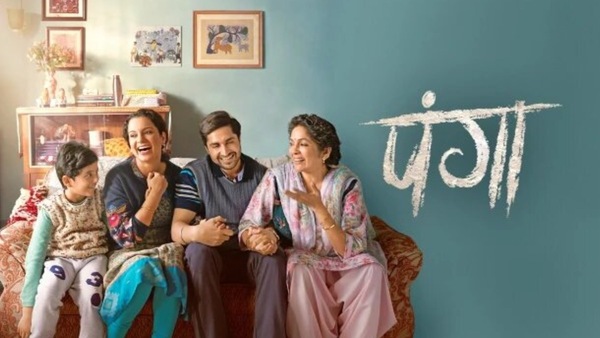
6. Gender pay parity is as much an issue in the entertainment industry today, as it is with other professions. Some would argue that some steps have been taken in this regard, but often it is brushed under the carpet. Where do you think we’re lacking to take it more seriously?
I would like to clarify one thing here that lack of equal pay may be a concern for actors, but when it comes to technicians, directors and writers, we are as good as what we are working for. And I don’t see any pay gap there. And I think I can humbly say this and I have a lot of gratitude that all the studios who I have worked with and all the producers whom I’ve worked with have always credited and always been very appreciative of my work. More than the gender, it’s about what you are getting onto the table as a director; what story you are telling.
7. In today’s day and age where theatres and OTTs co-exist, what’s your biggest fear as a storyteller while redefining the content consumption habits of the viewers?
For me, it is about telling a good story in the medium, which is required to tell a good story. And I have told all my stories in different mediums. I’ve even made a short film because that gave me joy. I did an anthology on Netflix, which gave me joy. I have done the series because that gave me joy. I have also done feature films. I think it is the best time for cinema, because we have a lot of mediums to tell our stories. Every film has a certain budget and that is required for the kind of actors who are going to come on board and the director who will helm the project. And that is what leads to the terms - whether it will be a theatrical release or an OTT launch. We also need to keep in mind that original films have given so many opportunities for so many writers, directors and actors, who would have never been seen otherwise.
That said, OTT platforms are now giving many secondary actors the space and opportunity to show their potential. We also have many young directors doing some great films and making a name for themselves. Isn’t that a sheer joy.
Of course, there has been a lot of difference in how we perceived things before and after the pandemic, but things are finally looking up. We are all very happy to see Shah Rukh Khan’s Pathaan doing so well and receiving so much love. It gives so much hope to so many filmmakers. We never step out to tell a story thinking about how it’s going to perform at the box office. We go out to tell a good story. Everything else is transition, because we don’t know what is going to happen on the day of release.
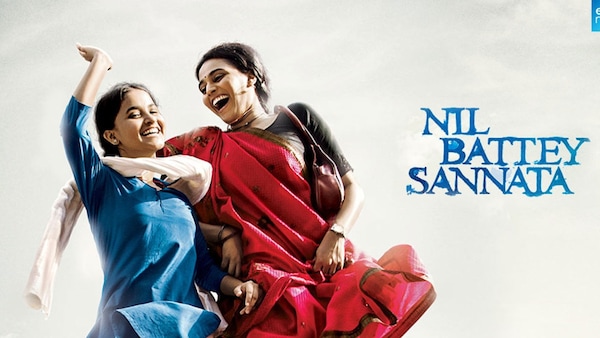
8. Speaking at a recent event that was conducted to celebrate the success of Pathaan, SRK said that there are times when he feels low on confidence several times in a day. Have you ever felt a similar way while working on any project? How do you bounce back or what keeps you going when the going gets tough?
When you’re starting your film, it’s quite joyful because we all are embarking on a new project. All the actors have come on board and you can actually see the light of day. You’ve been working on something for so long and finally it is happening. Of course, when you’re on the floor, there will be days that are very hectic - you’ll have your own issues, some production problems or things like that. But these problems can be solved. And then you’re ready to release the film. You’re happy that your film is out there for people to see, and you wait for people’s response. I think every person who is there in the field of arts always needs some kind of gratification. It’s something that keeps us going.
9. How is life as an advertising professional different from a director? You have quit a flourishing job with Leo Burnett Worldwide to follow her passion in filmmaking...
I still love advertising a lot. That will never go. I love the fact that making an ad film is also a group activity. It teaches you a lot about teamwork, giving credit to everyone. That said, there’s so much joy when it comes to filmmaking and telling the kind of stories that I have always wanted to tell. Also, cinema reaches a wider audience; it remains in the archives; and your story lives beyond you. The films that we make always stay beyond us and that gives joy to all creators, more than the box office numbers. More than anything else, in fact. Out of 100 people, even if two people come and tell you that the films that we have made have made a difference in their lives, that makes us tell even more stories. That’s pure joy.
10. You worked in advertising, then made full-length, feature films and now forayed into long-form content with Faadu. How is filmmaking different from that of creating a web series?
I do see that when you’re making a web series, it’s a far more challenging process because you’re not making just one film. Especially, when you are directing all the episodes in a series. That’s something like you are working on five films and not just concentrating on one. Also I’ve noticed that the start and end points of each episode, how you get to a cliffhanger, become very important. Then there are other things such as the pace of your story in each episode, the number of characters - everything kind of doubles when you are working on a web series. Each character has their own track that we need to follow. The production and schedules also double. I do feel that making a web series requires a lot of maturity. And that maturity is far superior, compared with making films, because you are dealing with a lot of things at one point of time.
11. In today’s world where social media serves instant reviews and feedback for films, do critics’ appreciation matter?
There are a number of senior critics in our country, who have a flair for writing and have a very honest way of writing a film review. You cannot expect everyone to like your film, but there is a reason we have critics to review your movie. Critiquing your work is important. But too much of something is also not good.
There’s a way you write what is called critical appreciation of a film. The way you write it, what you say if you don’t like something, there’s a way to write that also. I think that is more important. It is not just about writing, it’s also about the way you write it. Sometimes, the words are so sharp that it can affect a person. One would need a lot of mental strength to deal with that. Mind you, the act of detachment also requires a great amount of mental fortitude.
